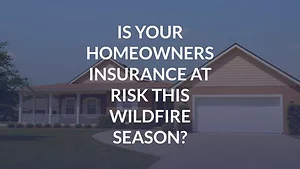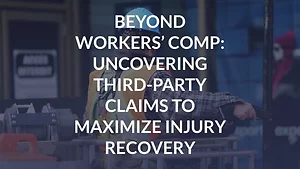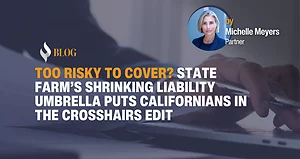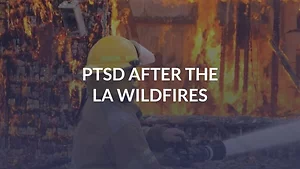With wildfire activity expected to intensify across the United States this summer, many homeowners in high-risk regions are facing the growing concern of losing their homeowners' insurance. As wildfires become more frequent and severe, insurance companies are reevaluating the risks, and in some cases, choosing to cancel or not renew policies altogether.
If your home is in a wildfire-prone area, it’s essential to understand your rights, your state’s protections, and what steps you can take if your coverage is dropped.
Speaking up about serious workplace issues, such as safety violations, fraud, or harassment, takes courage, especially in a unionized environment where workplace issues are addressed through established procedures. If you’ve witnessed illegal or unethical behavior and are considering reporting it, it’s crucial to understand your rights as a whistleblower and the protections available to you.
The Rowena Fire, which erupted near the Columbia River Gorge on Wednesday, June 11th has burned over 3,800 acres including over 49 homes and forced urgent evacuations as flames approached homes and structures in Wasco County, Oregon. While fire crews have made progress containing the blaze, questions are mounting about what ignited it. Is this yet another preventable disaster linked to corporate negligence?
Beyond Workers’ Comp: Uncovering Third-Party Claims to Maximize Injury Recovery
If you’ve been hurt at work, your first instinct may be to file a workers’ compensation claim. While this is the smart thing to do, it may not be your only option.
Many workplace injuries aren’t just the result of bad luck or clumsiness. They’re caused by defective equipment, dangerous work conditions created by outside contractors, or careless drivers who don’t work for your employer. When someone outside your company is responsible, you may have more than just a workers’ compensation ...
At a time when Californians face increasing risks from wildfires, rising medical costs, and ongoing litigation, the state’s largest insurer, State Farm, is now withdrawing critical protections—leaving policyholders exposed when they need coverage most.
In a recent move, State Farm has announced a sweeping list of disqualifying traits and activities that make policyholders ineligible for its California Personal Liability Umbrella Program, a type of policy that offers at least $1 million in extra protection. The exclusions now include everyday situations, such as homeowners who have filed just two claims in five years. So, filing for smoke, water, or storm damage, risks that are increasingly common in California due to extreme weather and wildfires, can now put ordinary homeowners at risk of losing essential coverage for routine events.
For many, these umbrella policies are not luxuries, they serve as a lifeline and essential safeguard. Removing access to this level of protection leaves countless individuals and families at risk of financial devastation.
I’ve been on two wheels most of my life.
My first motorcycle was purchased as a freshman in college for the sole purpose of affordable transportation. For a few thousand dollars, I was able to get around town and to and from school. Rain or shine, summer or winter, I soon found myself experiencing more than just getting from one point to the next, and before I knew it, I was hooked on what I came to call “clearing my head time.” Forty years and over 500,000 miles later, I am still enjoying each ride as if it was my first time.
There is something about being in the wind, experiencing every aspect ...
If you lived in Los Angeles during the recent wildfires, especially in or near a neighborhood that was directly affected, you may have noticed changes in how you feel, think, or function day to day. It’s not unusual to experience fear or sadness after a major disaster. But if those feelings are still lingering, intensifying, or interfering with your daily life, you could be dealing with signs of post-traumatic stress disorder (PTSD).
PTSD is more than just stress – it is a powerful psychological response to life-threatening events. For many wildfire survivors, the trauma ...
On Thursday, what began as a routine morning at the Hillsboro data center outside of Portland, Oregon turned into a five-hour battle against burning lithium-ion batteries that reveals critical gaps in how we regulate and prepare for the toxic risks posed by large-scale battery facilities.
The Hillsboro facility, reportedly leased by Elon Musk’s X for data storage including servers and networking infrastructure, became the site of a dangerous lithium fire on May 29. Fire crews were ultimately forced to abandon direct suppression efforts, instead working to contain the perimeter while allowing the battery bank to burn itself out.
The thick, toxic smoke and the fire's resistance to traditional suppression methods highlight a troubling reality: lithium-ion battery fires don't behave like ordinary fires, and our emergency response systems aren't adequately prepared for them.
As the weather warms up, pools become a central part of many California homes, offering a refreshing way to cool off. However, with the joys of pool ownership comes the responsibility of ensuring safety, especially when it comes to preventing drowning accidents, which can happen in the blink of an eye. For homeowners in California, the Swimming Pool Safety Act (SPSA) mandates specific measures to protect children and others from pool-related incidents.
At least 10 people have been hospitalized in connection with a listeria outbreak linked to ready-to-eat food products by Fresh & Ready Foods LLC of San Fernando, California, according to the US Food and Drug Administration (FDA).
Federal officials say the contaminated food was distributed across Arizona, California, Nevada, and Washington. The products were sold at a wide range of locations, including hospitals, hotels, convenience stores, airports, and even through airlines. The affected individuals were located in California and Nevada, and all required hospitalization.










